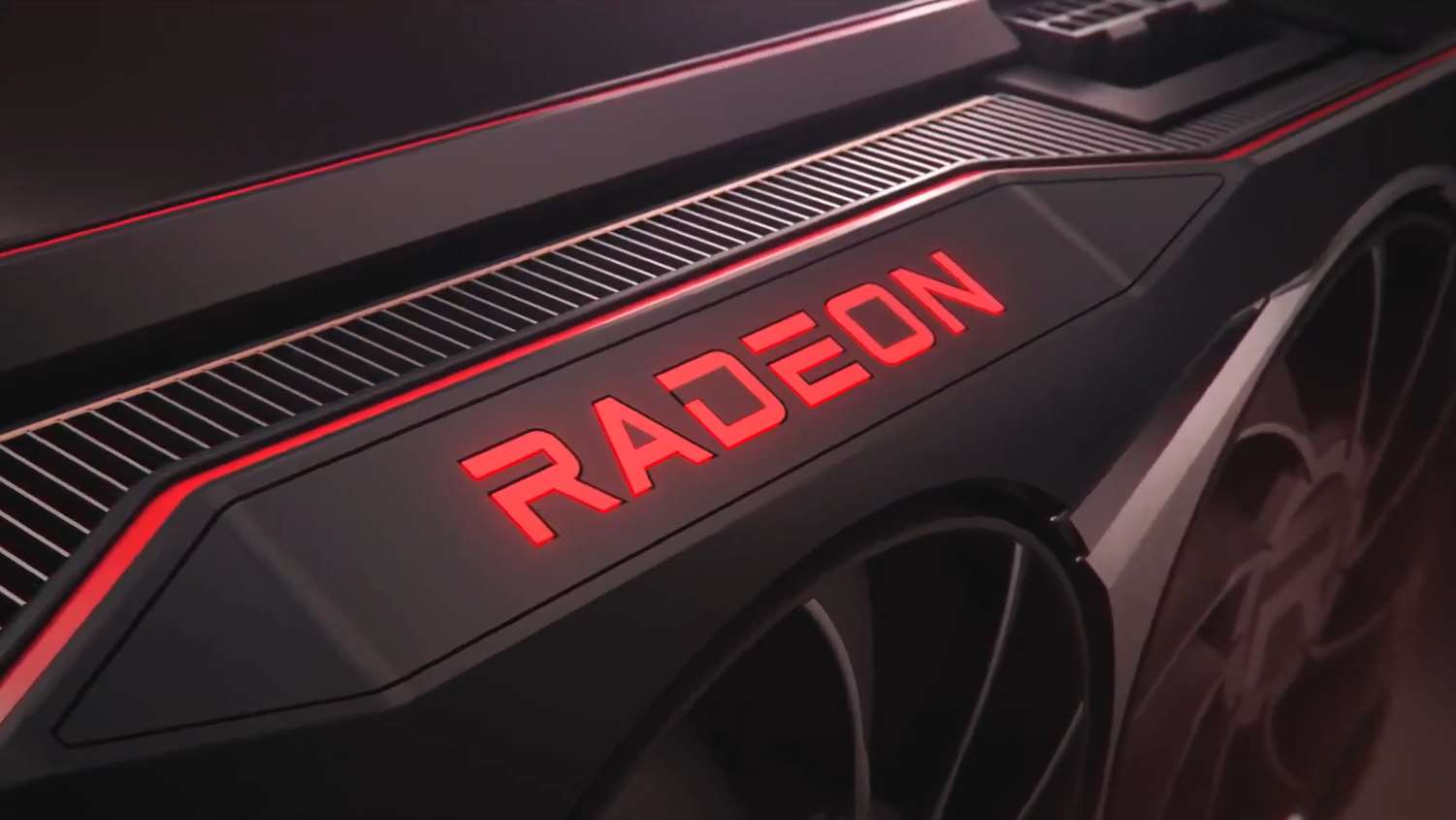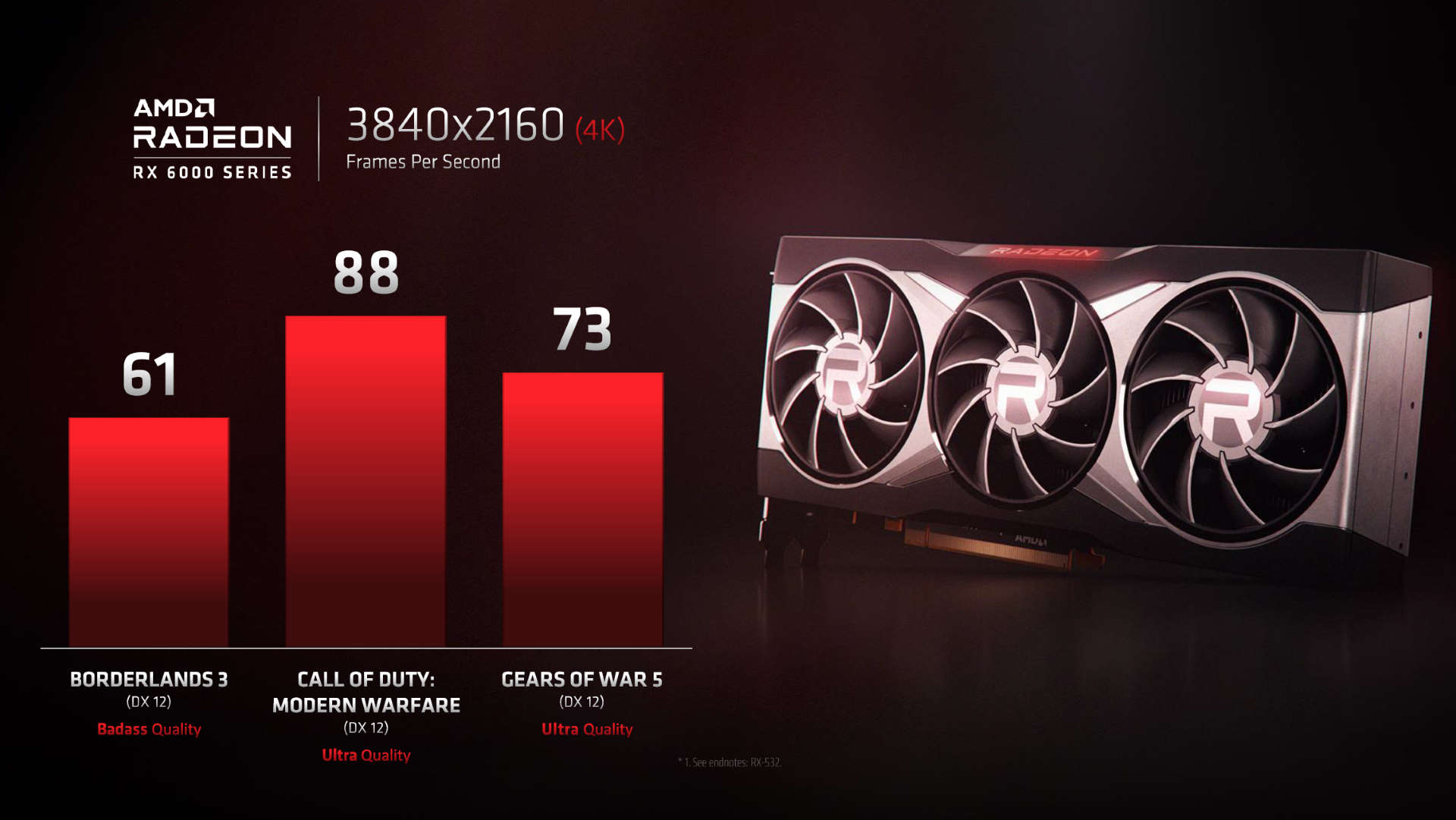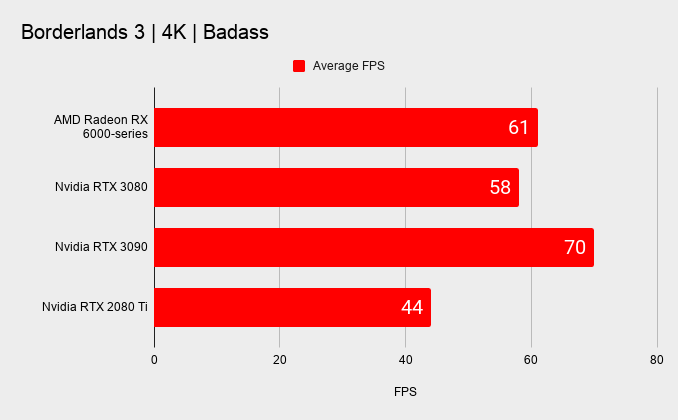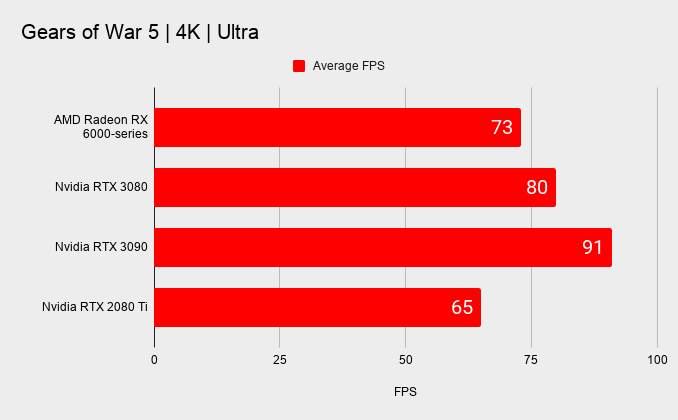AMD RX 6000 GPU benchmarks put it seriously close to Nvidia's RTX 3080. Maybe even ahead
Apples and oranges maybe, but those Big Navi benchmark figures mean it might trade blows with the Ampere GPU.

The new AMD RX 6000 graphics cards could deliver higher gaming performance than Nvidia's popular, but hard-to-find, RTX 3080 GPU. Potentially. That's one of the intriguing suggestions from yesterday's AMD Ryzen 5000 unveiling event.
After waxing lyrical for 25 minutes about it's upcoming 7nm processors—which look to genuinely be wrestling the gaming crown away from Intel—AMD gave us a sneak peak of its upcoming Radeon RX 6000-series graphics card, which Dr. Lisa Su now affectionately calls 'Big Navi' because, well, everyone else is.
We only got three benchmarks, but with the new Radeon GPU paired up with the equally new 12-core Ryzen 9 5900X, it's delivering higher performance than we can get out of our Nvidia RTX 3080 Founders Edition. In only one of those games. And admittedly while paired with a nominally weaker 8-core Intel i7 10700K.
In Borderlands 3 the RX 6000-series GPU managed to deliver 61fps at 4K Badass settings.
Recreating that on our test-bed with an RTX 3080 and we see just 58fps on average, which makes for a heady 5 percent lead for the AMD card, with an extra 3fps on top of the GeForce GPU.
Whether that's the top or second-tier version of the new pair of Radeon graphics cards being unveiled on October 28 we're still not sure. It's the same card that had its debut in Fortnite as a render in the sky (seriously 2020, you really can do one now), but AMD may want to save the biggest Big Navi for the main event.

That Borderlands 3 figure also represents a 39 percent lead over the RTX 2080 Ti, which is a much bigger deal. The fact that AMD can deliver gaming performance that is well in advance of what was, until a few weeks ago, the fastest consumer GPU around, is testament to what it's been doing with the new RDNA 2 architecture.
Keep up to date with the most important stories and the best deals, as picked by the PC Gamer team.

Gears of War 5 was one of the other tests presented by AMD, and there the Nvidia Ampere-based RTX 3080 takes the lead back, with the RX 6000 series GPU now 9 percent slower than the GeForce card. It's still quicker than the RTX 2080 Ti, but now by only 12 percent on average.
We sadly don't have a version of Call of Duty: Modern Warfare available that we can test with, so unfortunately can't talk to those numbers, but the suggestion that AMD is trading blows with the flagship GPU of the Nvidia Ampere generation is impressive.

But there are rather serious caveats to this 'result'.
Gears of War 5 and Borderlands 3 are very much 'AMD games', which historically work very well with the Radeon GPU architecture. The same can't be said for every game out there, and the results may well look a lot different when we've got our own independent gaming benchmarks on identical systems.
Of course AMD is going to choose the benchmarks which look best for its new cards, that makes complete sense.
But one of the reasons those numbers might look very different on our own rigs is because, if AMD's CPU performance numbers ring true, and the Ryzen 9 5900X is, on average 26 percent quicker than the Ryzen 9 3900X, that will have a big impact on our own Nvidia numbers.
In my testing, at 4K, the 10700K is some 5 percent quicker than the 3900X in gaming tests. If we're conservative in our Ryzen 5000 performance bumps and suggest a 4K fps boost of just 10 percent over the Intel chip, that still puts the RTX 3080 ahead even in Borderlands 3.

So it's not exactly clear cut just how close to Nvidia's flagship the new Big Navi GPUs are, or whether they will in fact be able to outperform the RTX 3080 on a level, independent benchmarking playing field. But one thing's for sure, AMD is going to be a lot hotter on Nvidia's heels than it has been in a long time.
And that might be enough to give some people pause for thought when it comes to the release of the RTX 3070. Though that just so happens to be right after the RX 6000 unveiling, with the next Ampere GPU launching on October 29. Coincidence, I'm sure.

Dave has been gaming since the days of Zaxxon and Lady Bug on the Colecovision, and code books for the Commodore Vic 20 (Death Race 2000!). He built his first gaming PC at the tender age of 16, and finally finished bug-fixing the Cyrix-based system around a year later. When he dropped it out of the window. He first started writing for Official PlayStation Magazine and Xbox World many decades ago, then moved onto PC Format full-time, then PC Gamer, TechRadar, and T3 among others. Now he's back, writing about the nightmarish graphics card market, CPUs with more cores than sense, gaming laptops hotter than the sun, and SSDs more capacious than a Cybertruck.

